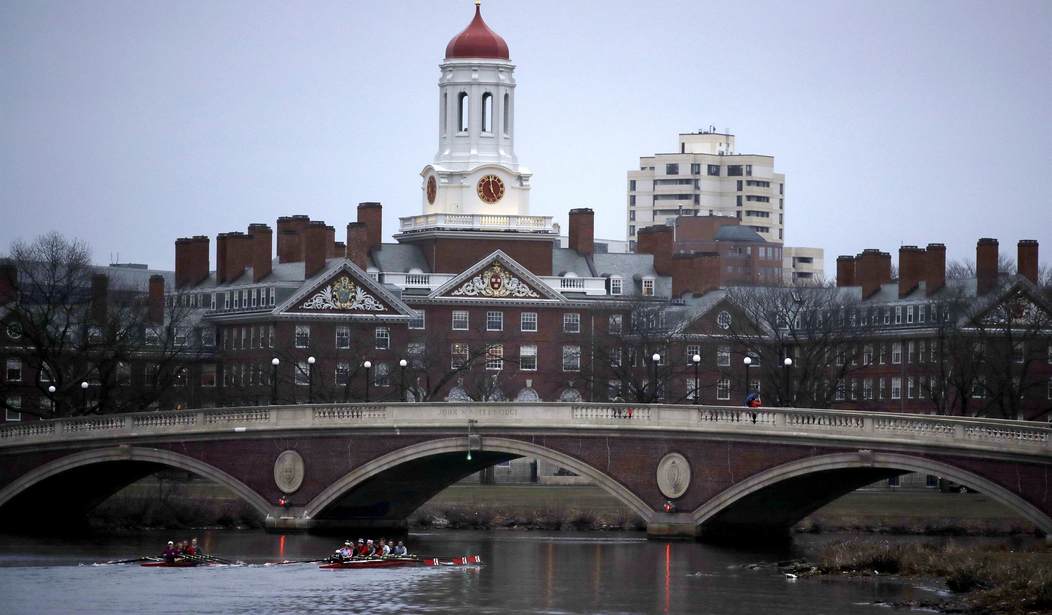The college admissions scandal should be the populist issue of our time.
Most of the talk in our politics about how "the system is rigged" is incredibly abstract and symbolic. But this is infuriatingly concrete.
On Tuesday, the Justice Department revealed a massive effort by wealthy parents and a shady "admissions consultant" to bribe and cheat their way into getting kids into a slew of elite schools.
Prosecutors say William Singer, the ringleader of the operation, sold two forms of services. For tens of thousands of dollars, parents could pay for their kids to have a proctor correct their incorrect answers as they took the SAT. Or, if that wouldn't do the trick, parents could pay hundreds of thousands of dollars to bribe coaches at elite schools to designate applicants as desired athletes, thus circumventing the minimum requirements for grades and test scores.
In one case, a California family allegedly paid $1.2 million to Singer, who in turn allegedly paid Rudy Meredith, the women's soccer coach at Yale, $400,000 to claim that the family's daughter was a coveted recruit even though she didn't play at all.
This scandal is a staggering indictment of higher education, and American education policy generally. Virtually every constituency in American life has good reason to be rankled. Defenders of affirmative action for various minority groups are rightly livid about this effort, by mostly rich white people who already have every advantage imaginable, to game the system. Opponents of affirmative action who argue that merit alone should determine admissions have every reason to be outraged as well.
For both groups, and for everyone between the two extremes, the pressure to get kids into the best college possible -- and then figure out how to pay for it -- is a source of incredible anxiety.
Recommended
But the scandal goes beyond just these issues. It is also a searing indictment of the value of an elite college education in the first place (and the ridiculous emphasis schools place on collegiate sports). None of these parents seemed remotely concerned about whether their kids could hack it once they got into their dream schools -- and rightly so.
George Mason economics professor Bryan Caplan, in his book "The Case Against Education," makes a compelling case that most of the value in diplomas from elite colleges isn't in the education they allegedly represent but in the cultural or social "signaling" they convey.
Imagine you're deposited on a desert island, forced to fend for yourself. Would you rather have the knowledge that comes with taking a survival training course, or just the piece of paper that says you took the course? Obviously, you'd rather know how to identify poisonous plants and sources of water than have a diploma that says you know how to do things you can't do. Now, ask yourself: Would you rather have the Yale education without the diploma, or the diploma without the education?
From an economic perspective, the piece of paper is vastly more valuable than the education, particularly in the humanities (and Caplan runs through the numbers to demonstrate this). The paper opens doors and gets you callbacks from employers and entree into elite social circles where who you know matters more than what you know. The education might make you a better person, but the parchment is the ticket to opportunity. It's no guarantee of success, but it's a profound hedge against failure.
Parents know this, and parents without special advantages -- wealth, fame, connections -- resent it.
As a matter of public policy, the way we tell everyone they should go to college, even if it means incurring crushing debt, is a scandal. College isn't for everyone, and it isn't necessary for many careers or vocations -- and shouldn't be necessary for many others.
If there's a maxim that should serve as a golden rule for policymakers, it's this: Complexity is a subsidy. The more complex we make a system, the more it rewards people with the resources -- social, cognitive, political or financial -- to navigate them. A system that rewards subjective priorities -- in the name of diversity, athletics, social justice, donations, preferences for legacy students, whatever -- creates opportunities for bureaucrats, parents and students to game the system.
You're never going to create a system where some parents won't do anything and everything to help their kids. All you can do is create a system that makes it more difficult to cheat or exploit loopholes. That requires clear, simple rules applicable to everyone.

























Join the conversation as a VIP Member